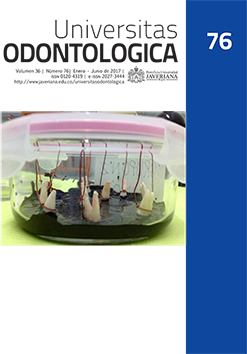Abstract
RESUMEN. En la primera parte, los autores hacen una breve explicación de lo que son las revisiones sistemáticas de la literatura, su importancia y exigencias metodológicas. En la segunda parte, analizan la acogida que tuvo la convocatoria de este dossier y las dificultades para publicar revisiones de buena calidad. Concluyen que los investigadores necesitan capacitación sobre qué son y cómo se hacen las revisiones sistemáticas.
ABSTRACT. In the first part, the authors briefly describe systematic reviews of literature, their importance, and methodological challenges. In the second part, they analyze the reception the call for submissions for this dossier had and the difficulties found to publish good quality reviews. They conclude that researchers need training about what systematic reviews are and how to conduct them.
Fink A. Conducting Research Literature Reviews. From the Internet to Paper. Thousand Oaks, CA: SAGE; 2014.
Moher D, Liberati A, Tetzlaff J, Altman DG, PRISMA Group. Preferred Reporting Items for Systematic Reviews and Meta-Analyses: The PRISMA Statement. PLoS Med. 2009 Jul; 6(7): e1000097.
Whittemore R, Knalf K. The Integrative Review. Updated Methodology. J Adv Nurs. 2005 Dec; 52(5): 546-53.
This journal is registered under a Creative Commons Attribution 4.0 International Public License. Thus, this work may be reproduced, distributed, and publicly shared in digital format, as long as the names of the authors and Pontificia Universidad Javeriana are acknowledged. Others are allowed to quote, adapt, transform, auto-archive, republish, and create based on this material, for any purpose (even commercial ones), provided the authorship is duly acknowledged, a link to the original work is provided, and it is specified if changes have been made. Pontificia Universidad Javeriana does not hold the rights of published works and the authors are solely responsible for the contents of their works; they keep the moral, intellectual, privacy, and publicity rights.
Approving the intervention of the work (review, copy-editing, translation, layout) and the following outreach, are granted through an use license and not through an assignment of rights. This means the journal and Pontificia Universidad Javeriana cannot be held responsible for any ethical malpractice by the authors. As a consequence of the protection granted by the use license, the journal is not required to publish recantations or modify information already published, unless the errata stems from the editorial management process. Publishing contents in this journal does not generate royalties for contributors.



